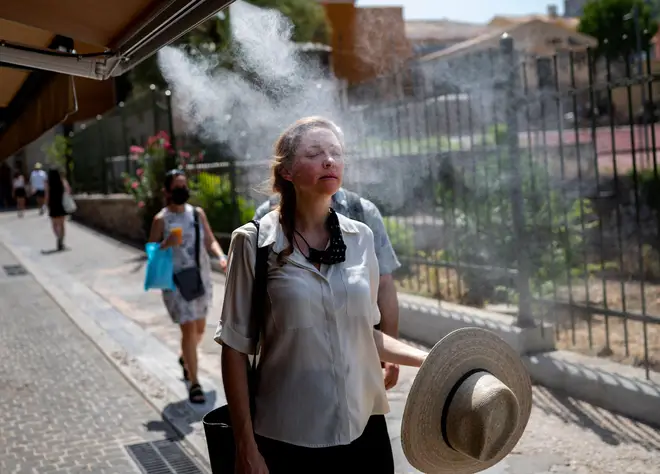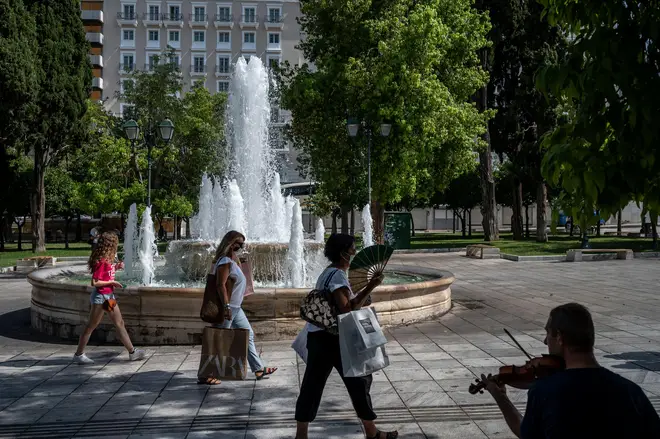
Clive Bull 1am - 4am
1 August 2021, 10:11

Parts of Europe are facing the worst heatwave in decades with wildfires raging and millions of people told not to venture out into the blazing midday sun.
Temperatures have risen above 40C (104 F) in many areas, and meteorologists expect the weather will continue into next week.
Authorities in Greece, Turkey, Serbia and Bulgaria and other countries, are warning residents to avoid venturing outside at midday.
Greek authorities have ordered additional fire patrols and infrastructure maintenance inspections as the country grapples with the heatwave.
READ MORE: UK's travel restrictions "out of step" with other countries, Chancellor tells PM

The emergency measures will also include efforts to create more air-conditioned areas open to the public in cities around Greece and at refugee camps, though the efforts are complicated by Covid-19 pandemic-related limits on how many people can gather together.
Temperatures in Greece and nearby countries in south-east Europe are expected to climb to 42C (107.6F) in many cities and towns on Monday and ease only later next week.
Officials said the additional inspections were aimed at preventing water and power outages, with the increased use of air conditioning testing the country's energy capacity.
Sporadic outages were reported in parts of greater Athens on Friday, but some had been planned by the grid operator for maintenance work.
"This is a dangerous weather phenomenon. We have been saying it from the start of the week," said Theodoris Kolydas, director of Greece's National Meteorological Service.
"The conditions will be stubborn and only subside gradually... very hot air masses from the shores of Africa are heading towards our region."
Workers most exposed to the heat, including those in construction, manual labour, catering and elsewhere, will be given longer breaks next week between midday and 4pm.
Employers were also instructed by the Labour Ministry to provide water and air-conditioned rest areas.
As the temperatures rose, three separate wildfires damaged homes in southern Greece this week, outside Athens and the western city of Patras.
Civil protection chief Nikos Hardalias said climate change was raising the fire risk.
"On average (in mid-summer), we are dealing with about 50 fires per day, and many of those are under difficult conditions. That number is clearly increasing each year," Mr Hardalias told private Antenna television.
"It's a phenomenon that's gradually getting worse. Climate change is now a climate threat. I say it everywhere I go. We all have a responsibility to protect the country," he said.